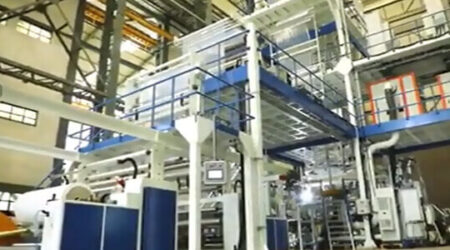Ensuring Smooth Operations: A Guide to Manufacturing Process Audits
Manufacturing process audits are a critical component of industrial operations. These audits ensure compliance with evolving standards and expectations, ultimately safeguarding quality, efficiency, and safety within manufacturing environments. By examining various processes, identifying non-conformances, and implementing corrective measures, auditing the manufacturing process helps maintain the integrity of production lines and enhance overall performance.
Understanding Manufacturing Process Audits
What Are Manufacturing Process Audits?
Auditing Manufacturing processes are systematic evaluations of production processes to ensure they meet specified standards and regulations. These audits can vary in scope, from simple checklist inspections to comprehensive, cross-functional examinations of specific processes. The primary goal is to identify and document non-conformances, classify them based on severity, and implement corrective actions to address these issues promptly.
Types of Manufacturing Process Audits
- Compliance Audits: These audits verify adherence to industry standards, regulations, and internal policies. Compliance audits are essential for ensuring that manufacturing operations meet legal and regulatory requirements.
- Process Audits: Focused on specific manufacturing processes, these audits examine the efficiency and effectiveness of each step in the production line. Process audits help identify bottlenecks, inefficiencies, and areas for improvement.
- Product Audits: These audits assess the quality and conformity of finished products to ensure they meet customer specifications and industry standards. Product audits are crucial for maintaining product quality and customer satisfaction.
- Supplier Audits: Evaluating suppliers’ capabilities and processes, these audits ensure that suppliers can consistently meet the company’s quality and delivery requirements. Supplier audits help mitigate risks associated with the supply chain.
The Importance of Manufacturing Process Audits
- Ensuring Quality and Safety
One of the primary objectives of auditing the manufacturing process is to maintain high-quality standards and ensure the safety of products and processes. By identifying non-conformances early, manufacturers can prevent defects, reduce rework, and minimize the risk of safety incidents. Regular audits help create a culture of continuous improvement, where quality and safety are prioritized at every stage of production. - Enhancing Efficiency and Productivity
Auditing the Manufacturing process plays a crucial role in identifying inefficiencies and optimizing production processes. By thoroughly examining each step of the manufacturing process, auditors can pinpoint areas where improvements can be made. These improvements often lead to increased productivity, reduced waste, and lower operational costs. Ultimately, these audits contribute to a more streamlined and efficient production environment. - Facilitating Compliance and Risk Management
Compliance with industry standards and regulations is non-negotiable in manufacturing. Auditing the manufacturing process ensures that all processes align with relevant standards, helping companies avoid legal issues and penalties. Additionally, audits help identify and mitigate potential risks, such as equipment malfunctions, process deviations, and quality control issues. Proactive risk management through regular audits is essential for maintaining a stable and compliant manufacturing operation.
Key Steps in Conducting Manufacturing Process Audits
- Planning and Preparation
Effective auditing manufacturing process begin with thorough planning and preparation. This stage involves defining the scope of the audit, selecting the audit team, and developing a detailed audit plan. Key considerations include identifying the processes to be audited, setting audit objectives, and determining the criteria for evaluating compliance and performance. - Conducting the Audit
During the audit, the audit team systematically evaluates the selected processes against predefined criteria. This involves reviewing documentation, observing processes in action, and conducting interviews with personnel. The audit team collects evidence of compliance and non-conformance, documenting their findings in a detailed audit report. - Analyzing Findings and Implementing Corrective Actions
After the audit, the findings are analyzed to identify root causes of non-conformances and areas for improvement. The audit team works with process owners to develop and implement corrective actions to address identified issues. Corrective actions may include process adjustments, employee training, equipment maintenance, and other measures to ensure compliance and improve performance. - Monitoring and Follow-Up
Effective auditing manufacturing processes do not end with the implementation of corrective actions. Ongoing monitoring and follow-up are essential to ensure that corrective actions are effective and sustainable. Regular audits and continuous monitoring help maintain compliance, drive continuous improvement, and prevent recurring issues.
Advantages of Manufacturing Process Audits
- Improved Product Quality
By identifying and addressing non-conformances early, auditing the manufacturing process helps ensure that products meet high-quality standards. This leads to improved product consistency, reduced defects, and higher customer satisfaction. Companies that prioritize quality through regular audits are more likely to build a strong reputation and retain loyal customers. - Enhanced Operational Efficiency
Auditing the Manufacturing process identifies inefficiencies and bottlenecks within production processes. By addressing these issues, companies can streamline operations, reduce waste, and improve overall efficiency. This not only lowers production costs but also enables faster turnaround times and increased production capacity. - Better Compliance and Risk Management
Regular audits ensure that manufacturing processes comply with industry standards, regulations, and internal policies. This helps companies avoid legal issues, penalties, and reputational damage. Additionally, audits help identify potential risks and implement measures to mitigate them, enhancing overall risk management and operational stability. - Increased Employee Accountability and Engagement
Auditing Manufacturing process promotes a culture of accountability and continuous improvement among employees. By involving personnel in the audit process and encouraging open communication, companies can foster a sense of ownership and engagement. Employees who understand the importance of quality and compliance are more likely to contribute to a positive and productive work environment.
The Path to Excellence in Manufacturing
Incorporating manufacturing process audits into your operations is not just a regulatory requirement; it is a strategic decision that drives excellence. These audits ensure that every aspect of your manufacturing process is optimized for quality, efficiency, and safety. By identifying and addressing non-conformances, fostering continuous improvement, and maintaining compliance, auditing the manufacturing process paves the way for enhanced productivity and profitability.











Leave a Reply